-
This book deals with various aspects of curriculum development, philosophies of education and education in general including adult education. It examines Kenya’s past and present goals and objectives of education and gives detailed information on the latest Kenyan educational system of 8-4-4 (eight years primary education, four years secondary education, and four years university education). Also included in the book are examples from the educational systems of Tanzania and Rivers State in Nigeria.

Curriculum development: Alternatives in educational theory & practice
KSh 350.00
This book deals with various aspects of curriculum development, philosophies of education and education in general including adult education. It examines Kenya’s past and present goals and objectives of education and gives detailed information on the latest Kenyan educational system of 8-4-4 (eight years primary education, four years secondary education, and four years university education). Also included in the book are examples from the educational systems of Tanzania and Rivers State in Nigeria.
1 in stock
| SKU: | 10000531 |
|---|---|
| Category: | Social science |
Related products
-
The Man Who Quit Money Paperback
KSh 1,000.00In 2000, Daniel Suelo left his life savings-all thirty dollars of it-in a phone booth. He has lived without money-and with a newfound sense of freedom and security-ever since. The Man Who Quit Money is an account of how one man learned to live, sanely and happily, without earning, receiving, or spending a single cent. Suelo doesn’t pay taxes, or accept food stamps or welfare. He lives in caves in the Utah canyonlands, forages wild foods and gourmet discards. He no longer even carries an I.D. Yet he manages to amply fulfill not only the basic human needs-for shelter, food, and warmth-but, to an enviable degree, the universal desires for companionship, purpose, and spiritual engagement. In retracing the surprising path and guiding philosophy that led Suelo into this way of life, Sundeen raises provocative and riveting questions about the decisions we all make, by default or by design, about how we live-and how we might live better.
-
And the Mountains Echoed Paperback
KSh 1,295.00From the no. 1 bestselling author of The Kite Runner and A Thousand Splendid Suns, the book that readers everywhere have been waiting for: his first novel in six years. So, then. You want a story and I will tell you one… Afghanistan, 1952. Abdullah and his sister Pad live with their father and step-mother in the small village of Shadbagh. Their father, Saboor, is constantly in search of work and they struggle together through poverty and brutal winters. To Adbullah, Pad, as beautiful and sweet-natured as the fairy for which she was named, is everything. More like a parent than a brother, Abdullah will do anything for her, even trading his only pair of shoes for a feather for her treasured collection. Each night they sleep together in their cot, their skulls touching, their limbs tangled. One day the siblings journey across the desert to Kabul with their father. Pad and Abdullah have no sense of the fate that awaits them there, for the event which unfolds will tear their lives apart; sometimes a finger must be cut to save the hand. Crossing generations and continents, moving from Kabul, to Paris, to San Francisco, to the Greek island of Tinos, with profound wisdom, depth, insight and compassion, Khaled Hosseini writes about the bonds that define us and shape our lives, the ways that we help our loved ones in need, how the choices we make resonate through history, and how we are often surprised by the people closest to us.
-
The Ethnographic Imagination
KSh 1,200.00In this book Paul Willis, a renowned sociologist and ethnographer, aims to renew and develop the ethnographic craft across the disciplines. Drawing from numerous examples of his own past and current work, he shows that ethnographic practice and the ethnographic imagination are vital to understanding the creativity and irreducibility of experience in all aspects of social and cultural practice.
Willis argues that ethnography plays a vital role in constituting ‘sensuousness’ in textual, methodological, and substantive ways, but it can do this only through the deployment of an associated theoretical imagination which cannot be found simply there in the field. He presents a bold and incisive ethnographically oriented view of the world, emphasizing the need for a deep-running social but also aesthetic sensibility. In doing so he brings new insights to the understanding of human action and its dialectical relation to social and symbolic structures. He makes original contributions to the understanding of the contemporary human uses of objects, artefacts and communicative forms, presenting a new analysis of commodity fetishism as central to consumption and to the wider social relations of contemporary societies. He also utilizes his perspective to further the understanding of the contemporary crisis in masculinity and to cast new light on various lived everyday cultures – at school, on the dole, on the street, in the Mall, in front of TV, in the dance club.
This book will be essential reading for all those involved in planning or contemplating ethnographic fieldwork and for those interested in the contributions it can make to the social sciences and humanities.
-
Handbook of Agricultural Entomology
KSh 16,380.00Handbook of Agricultural Entomology by Helmut van Emden is a landmark publication for students and practitioners of entomology applied to agriculture and horticulture. It can be used as a reference and as a general textbook.
The book opens with a general introduction to entomology and includes coverage of the major insects (and mites) that cause harm to crops, livestock and humans. The important beneficial species are also included. Organisms are described in a classification of insect Orders and Families. The emphasis is on morphological characters of major taxonomic divisions, “spot characters” for the recognition of Families, and the life histories, damage symptoms and economic importance of the various pest species.
The book is beautifully illustrated in full colour with more than 400 figures showing both the organisms and the damage caused to plants with diagnostic characters indicated by arrows. Coverage is world-wide and includes much material stemming from the vast personal experience of the author.
-
Tess of the D’Urbervilles
KSh 650.00Young Tess Durbeyfield attempts to restore her family’s fortunes by claiming their connection with the aristocratic d’Urbervilles. But Alec d’Urberville is a rich wastrel who seduces her and makes her life miserable. When Tess meets Angel Clare, she is offered true love and happiness, but her past catches up with her and she faces an agonizing moral choice. Thomas Hardy’s indictment of society’s double standards, and his depiction of Tess as “”a pure woman,”” caused controversy in his day and has held the imagination of readers ever since. Hardy thought it his finest novel and Tess the most deeply felt character he ever created.
-
Qualitative Research Design
KSh 7,700.00Qualitative Research Design: An Interactive Approach provides researchers and students with a user-friendly, step-by-step guide to planning qualitative research. It shows how the components of design interact with each other, and provides a strategy for creating coherent and workable relationships among these design components, highlighting key design issues. Written in an informal, jargon-free style, the new Third Edition incorporates examples and hands-on exercises.
-
The Age of the Warrior-ROBERT FISK
KSh 995.00The Age of the Warrior: Selected Writings by Robert Fisk
A selection of Robert Fisk’s finest ‘Comment’ pieces from the Saturday Independent.
Robert Fisk has amassed a devoted readership over the years, with his insightful, witty and always outspoken articles on international politics and mankind’s war-torn recent history. He is best known for his writing about the Middle East, its wars, dictators and international relations, but these ‘Comment’ articles cover an array of topics, from his soldier grandfather to handwriting to the Titanic – and of course, President Bush, terrorism and Iraq.
-
Peace Kills – Softcover800
KSh 500.00In this latest collection of adventures, P. J. O’Rourke casts his mordant eye on America’s recent foreign policy forays. He first travels to Kosovo where he meets KLA veterans, Albanian refugees and peacekeepers, and confronts the paradox of ‘the war that war-haters love to love’. He visits Egypt, Israel and Kuwait, where he witnesses citizens enjoying their newfound freedoms – namely, to shop, to eat and to sit around a lot. Following 11 September, O’Rourke examines the far-reaching changes in the US, from the absurd hassles of airport security to the dangers of anthrax. In Iraq, he witnesses both the beginning and the end of Operation Iraqi Freedom and takes a tour of a presidential palace, concluding that the war was justified for at least one reason: criminal interior decorating.
Peace Kills is an eye-opening look at a world much changed since O’Rourke wrote his bestselling Give War A Chance – a book in which he presciently declared that the most troubling aspect of war is sometimes peace itself.

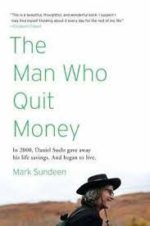
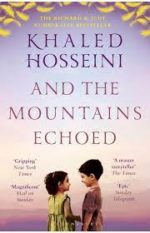
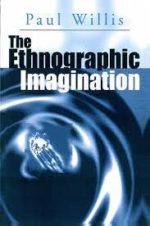
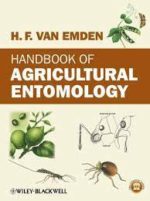
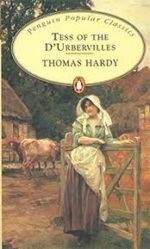
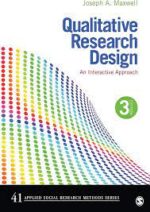
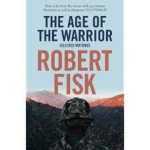

Be the first to review “Curriculum development: Alternatives in educational theory & practice”